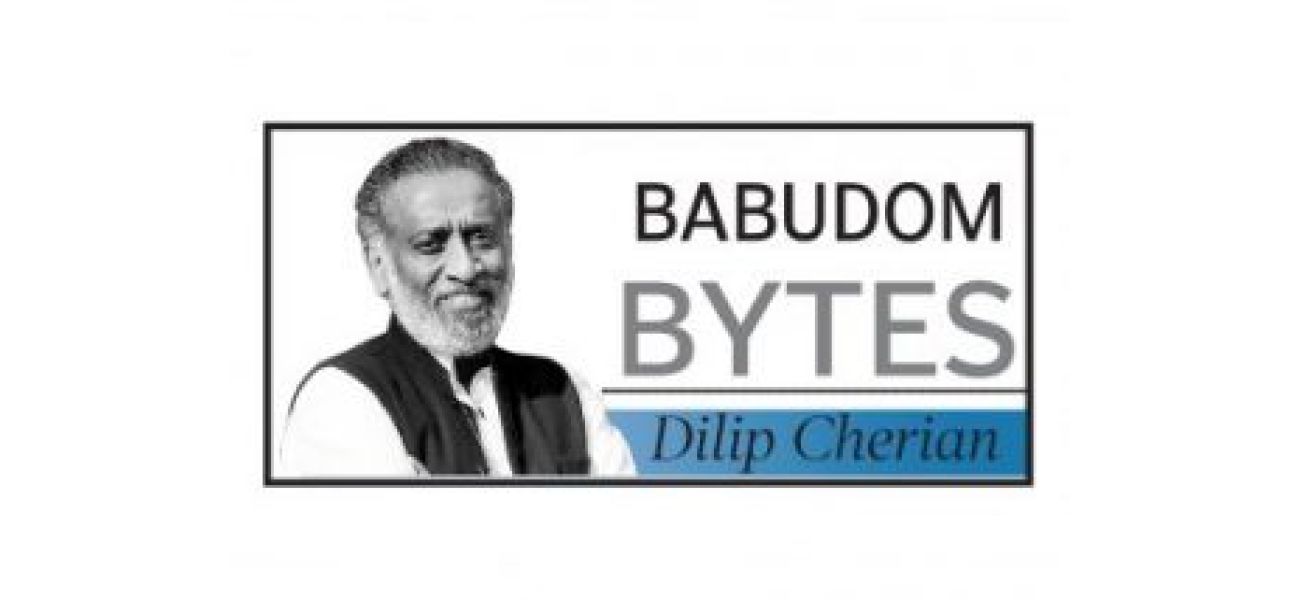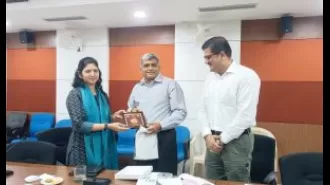A CSS crisis is when a website's Cascading Style Sheets (CSS) fail to load or are not applied correctly, causing the site's design and layout to appear broken.
The CSS, a vital part of the government, is experiencing paralysis due to lack of timely cadre reviews, fair promotions, and parity with other central services.
August 2nd 2025.

The Central Secretariat Service, while not a well-known government entity, is a crucial component of the government's operations. It serves as the backbone of the government, ensuring its smooth functioning. However, it seems to be struggling with some internal issues at the moment. The CSS Forum has been advocating for basic administrative needs such as timely reviews, fair promotions, and equal treatment as other central services. Unfortunately, the 4th cadre review, which was supposed to be completed in 2018, is still stuck in bureaucratic processes. This delay is causing a seven-year gap in what should have been a routine exercise, resulting in promotions being put on hold. Under Secretaries are waiting for over twelve years for their promotions, while ASOs from the 2014 batch have yet to receive any promotions. This situation is a clear reflection of the neglect and lack of concern for the CSS by the government.
The consequences of this delay go beyond just low morale among CSS officers. The government is facing a massive shortage of CSS officers, with at least 2,500 officers needed across 24 departments based on RTI replies. This shortage has a direct impact on governance, efficiency, and public service delivery. It is disheartening to see that other services have their cadre reviews completed within a year, while the CSS is still stuck in a bureaucratic quagmire. This raises the question of whether the government is purposely neglecting the CSS.
In order to achieve Prime Minister Narendra Modi's vision of an efficient and responsive government, it is crucial to have a robust CSS. The CSS cannot be expected to keep up with the digital transformation of India if its own HR processes are stuck in the past. The Department of Personnel and Training, responsible for personnel policy, must ensure that CSS officers are treated with the same respect as other civil servants. The CSS is not seeking special privileges, just equality. It is time for the government to listen and take action before the CSS grinds to a halt.
Recently, Vice President Jagdeep Dhankhar resigned from his position due to health concerns. While his resignation may have been attributed to his health, the aftermath of his resignation raises some eyebrows. Reports suggest that his staff, including officers on deputation, were immediately sent back to their parent cadres without any transition period or assistance. This hasty response is not only unprofessional but also speaks volumes about the true reasons behind Dhankhar's resignation. When a high-ranking constitutional officer steps down, it is customary for the system to allow for an orderly handover and maintain dignity. However, this was not the case this time, sending a clear message that not only was Dhankhar out, but so were his people.
This kind of administrative show of power hints at a possible involuntary resignation of Dhankhar. The silence from the ruling establishment only adds to the suspicion of a quiet purge. The paperwork and actions taken suggest that this was a personal vendetta against Dhankhar. It is not the first time we have seen this kind of scenario play out, but this time, the government seems to be erasing any traces of Dhankhar's existence even faster.
In a rather unexpected trend, babus (government officials) are now venturing into the world of podcasts. These state-run or insider-led podcasts feature police officers and babus sharing stories that were once confined to office corridors. For instance, the Uttar Pradesh Police's "Beyond the Badge" podcast covers topics such as Rs 100-crore insurance fraud cases and UPSC toppers, narrated by the cops themselves. It is a unique way of storytelling, with technical forensic details and aspirational journeys. Similarly, Haryana's HSNCB chief recently launched a podcast series that delves into drug enforcement operations, from pharmacy abuse to interstate smuggling chains.
While these podcasts may serve the public interest and promote transparency, they also seem to be a way for babus to craft their image and showcase their "coolness." The message being sent is that these babus are modern, woke, and relatable individuals. This trend is a result of India's podcast culture explosion, where even government officials are trying to use podcasts as a means to gain popularity. However, not everyone is convinced by this move. Some have raised concerns about whether civil servants, who are expected to be faceless public servants, should be using social media to build their personal brand. While these podcasts may humanize bureaucratic processes, the real test for babus lies in their ability to do their work transparently and effectively.
The consequences of this delay go beyond just low morale among CSS officers. The government is facing a massive shortage of CSS officers, with at least 2,500 officers needed across 24 departments based on RTI replies. This shortage has a direct impact on governance, efficiency, and public service delivery. It is disheartening to see that other services have their cadre reviews completed within a year, while the CSS is still stuck in a bureaucratic quagmire. This raises the question of whether the government is purposely neglecting the CSS.
In order to achieve Prime Minister Narendra Modi's vision of an efficient and responsive government, it is crucial to have a robust CSS. The CSS cannot be expected to keep up with the digital transformation of India if its own HR processes are stuck in the past. The Department of Personnel and Training, responsible for personnel policy, must ensure that CSS officers are treated with the same respect as other civil servants. The CSS is not seeking special privileges, just equality. It is time for the government to listen and take action before the CSS grinds to a halt.
Recently, Vice President Jagdeep Dhankhar resigned from his position due to health concerns. While his resignation may have been attributed to his health, the aftermath of his resignation raises some eyebrows. Reports suggest that his staff, including officers on deputation, were immediately sent back to their parent cadres without any transition period or assistance. This hasty response is not only unprofessional but also speaks volumes about the true reasons behind Dhankhar's resignation. When a high-ranking constitutional officer steps down, it is customary for the system to allow for an orderly handover and maintain dignity. However, this was not the case this time, sending a clear message that not only was Dhankhar out, but so were his people.
This kind of administrative show of power hints at a possible involuntary resignation of Dhankhar. The silence from the ruling establishment only adds to the suspicion of a quiet purge. The paperwork and actions taken suggest that this was a personal vendetta against Dhankhar. It is not the first time we have seen this kind of scenario play out, but this time, the government seems to be erasing any traces of Dhankhar's existence even faster.
In a rather unexpected trend, babus (government officials) are now venturing into the world of podcasts. These state-run or insider-led podcasts feature police officers and babus sharing stories that were once confined to office corridors. For instance, the Uttar Pradesh Police's "Beyond the Badge" podcast covers topics such as Rs 100-crore insurance fraud cases and UPSC toppers, narrated by the cops themselves. It is a unique way of storytelling, with technical forensic details and aspirational journeys. Similarly, Haryana's HSNCB chief recently launched a podcast series that delves into drug enforcement operations, from pharmacy abuse to interstate smuggling chains.
While these podcasts may serve the public interest and promote transparency, they also seem to be a way for babus to craft their image and showcase their "coolness." The message being sent is that these babus are modern, woke, and relatable individuals. This trend is a result of India's podcast culture explosion, where even government officials are trying to use podcasts as a means to gain popularity. However, not everyone is convinced by this move. Some have raised concerns about whether civil servants, who are expected to be faceless public servants, should be using social media to build their personal brand. While these podcasts may humanize bureaucratic processes, the real test for babus lies in their ability to do their work transparently and effectively.
[This article has been trending online recently and has been generated with AI. Your feed is customized.]
[Generative AI is experimental.]
0
0
Submit Comment





